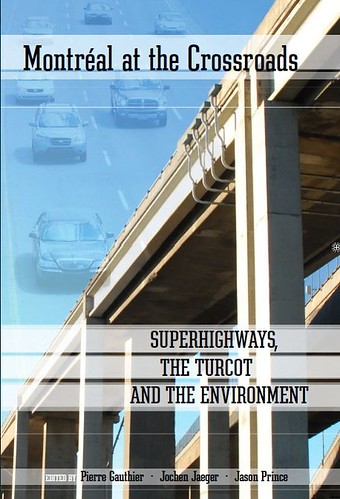Where is the big thinking on big issues? Transit in the DC region
Before I went off on vacation, I managed to speak at the hearing that the MWCOG-Board of Trade task force held on "WMATA governance." GGW blogged about the issue here, "Dear COG and Board of Trade: Democracy is healthy."
Now I don't really think the issue is "democracy" per se, but figuring out what your desired outcomes are, and getting the right system and set of processes in place to generate those outcomes, and coming up with the right governance structure.
While I do believe in democracy, and I probably believe that the WMATA board should be directly elected, the issue is how to do regional transportation planning and regional transit service--what in my transportation planning framework I actually call "metropolitan" transportation planning and metropolitan transit service.
We have badly working leadership on the board of WMATA and we don't have effective transportation planning in the metropolitan region either. The car remains king.
My testimony was about how this is what needs to be addressed, in toto, not just the question of the WMATA board and the process by which the board is presently appointed.
(I did a presentation about metropolitan transportation planning at the University of Delaware in March but I am only just now getting around to posting it, although problems with my home computer mean it'll be another day or two before I get the March presentation online at Scribd, although I will say it's drawn from various blog entries over the years, so to me it's nothing new).
Frankly, I'm with the conventional wisdom that the board of directors for WMATA isn't working--except for the appointees from Northern Virginia, there's not a whole lot of regional leadership being provided by the board members.
OTOH, I differ from the conventional wisdome that having the Governors of Maryland and Virginia and the Mayor of DC appoint the directors (plus the federal appointees) will make things better.
I don't have my notes handy from the hearing, but a few people made some good points (including me) although the chair wasn't always interested in hearing them. I did find it interesting that in the comments responding to the testimonies by the various task members, that it was the public officials on the task force (plus Ron Carlee, an ex-public official) that were most clued into the necessity for broader thinking, public involvement, etc., in the process.
One speaker was from the Dulles Corridor Transportation Task Force, who argued two things: (1) that transit beyond the beltway is the most important issue and (2) that the fact is that expert appointees to boards such as the Metropolitan Washington Airports Authority actually do quite a good job.
Now, the reality is that WMATA's task is not providing transit outside the Beltway so much, especially in the exurbs. The more distant and less populated the destinations and origin points, the much more difficult it is to make transit work effectively. But I will say that this is an issue for metropolitan transportation planning...
Having spent about 10 days in Montreal earlier this month, the differentiation in their system between service in Montreal--subway and bus, with limited extension beyond Montreal to Longeuil and Laval on subway--and commuter trains serving the region beyond Montreal (although the train service actually serves a number of stations in Montreal as well) complemented by bus service provided by the various municipalities, I spent more time thinking abou the difficulties posed by the fact that the WMATA subway service is a hybrid providing both intra-city transit in places like Washington and Arlington County, while providing service more comparable to commuter rail in the other part of the system.
Montreal--both the city proper and the region--has similar transportation issues. The core of the city is well served by the subway and bus and the fact that the core was built during the Walking City and Transit Eras of urban design means that transit works very well there.
But the rest of the region is for the most part car-centric, and the outskirts of Montreal is much more car-centric than the core. And as I blogged last week, some of the arondissements in Montreal are very much focused on quality of life-active transportation agendas, and there is just as much opposition to this from the car-centric areas as there is anywhere in the U.S. when similar kinds of proposals are raised (i.e., bike lanes, streetcars, etc.).
(FWIW, we were in Montreal for 9 days and did not set foot in a car once--we walked, I biked some, and we took the subways, with some bus riding.)

It is this kind of broader and visionary thinking that I wish would be happening right now as it relates to WMATA and rebuilding the region's consensus about the role and value of transit.
I am hopeful, but not expecting that the COG-BOT process will lead to the necessary visionary thinking and process that the region desperately needs.
See the past blog entry "St. Louis regional transit planning process as a model for what needs to be done in the DC Metropolitan region" for my point that a wide-ranging public process, not a closed process limited to the traditional political and economic elite, is necessary within the DC region to restore the role of and trust in public transit, specifically with WMATA.
Labels: transportation planning



0 Comments:
Post a Comment
<< Home